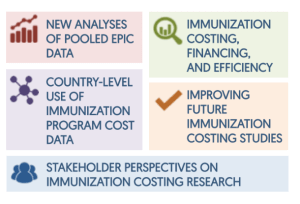This webinar took place on June 22, 2018. However, if you missed the webinar or would like to listen to it again, you can watch the recording and download the slides.
In 2016, HSG held the first webinar on gender, asking the question, “What part should gender play in reconstructing post-conflict health systems?” Two years on and much has changed. There is a growing interest in applying gender frameworks and analysis in health systems research. The #metoo movement and other popular feminist actions have driven greater attention to gender equity. New conflicts and health crises have arisen in various settings prompting humanitarian emergency responses.
This webinar does not seek to make the argument that we should focus on gender in post-conflict health systems. We feel that argument has been settled. Rather we describe how the process of focusing on gender has unfolded in different settings and share a range of tools that interested researchers, policymakers and practitioners could use and adapt to stimulate progress towards gender equity.
We also want to hear from you. What challenges are you facing in taking forward this agenda? How can our global community of health systems researchers help in constructing the kind of evidence base that would guide good decision makers and facilitate best practice? Help us to shape the presentations by completing this short survey. It takes about three minutes.
Panelists
Introduction and survey results – Egbert Sondorp, the Thematic Working Group on Health Systems in Fragile and Conflict-Affected States
An overview of useful tools and approaches – Val Percival and Amber Warnat, Carleton University
Country case studies – Justine Namakula (School of Public Health, Makerere University, Uganda), Haja Wurie (College of Medicine and Applied Health Sciences, Sierra Leone)
The webinar is sponsored by RinGs, the ReBUILD Research Programme Consortium, and the Building Back Better project. It will be facilitated by Health Systems Global.
Curatio International Foundation hosts Health Systems Global Secretariat. Health Systems Global (HSG) is the first international membership organization fully dedicated to promoting health systems research and related knowledge translation. HSG brings together researchers, policy-makers, funders, implementers, civil society and other stakeholders from all over the world. Around 1900 HSG members work together to create, share and apply knowledge necessary for strengthening health systems globally.
Check the announcement on HSG website.

